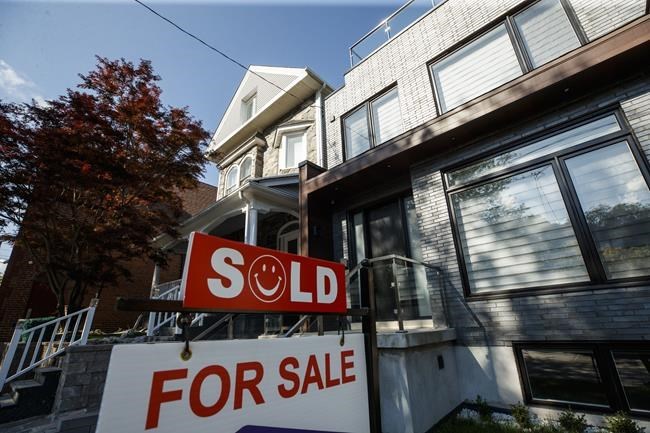Real estate observers say a new mortgage code of conduct promised in the federal budget will be handy for Canadians facing financial difficulties, but they still feel the economic plan was lacking needed housing affordability measures.
The code of conduct announced Tuesday is meant to ensure federally regulated financial institutions will provide fair and equitable access to mortgage relief measures for people struggling to stay in their homes because of elevated interest rates.
It would protect these people from unnecessary penalties, internal bank fees, or interest charges and allow them to extend amortizations beyond 25 years, adjust payment schedules and make lump-sum payments.
The code of conduct is "good news" for people with variable rate mortgages facing financial burdens, said Sherry Cooper, Dominion Lending Centres' chief economist.
"If the banks can extend remaining amortizations when borrowers renew, the pressure on their pocketbooks will be markedly lower," she wrote in a note to investors.
However, Cooper felt the overall budget offered "not much for affordable housing" and mostly featured "a laundry list of measures" the federal government has previously taken.
From last year's budget it referenced a tax-free savings account being implemented for first-time homebuyers next month, a two-year ban on non-residents purchasing residential properties and the $4-billion Housing Accelerator Fund, which plans to create at least 100,000 net new homes.
Douglas Porter, chief economist at BMO Capital Markets, considered last year's economic plan to be "the housing budget" because real estate affordability was the "showpiece."
"It's almost like the focus moved on this year," he said.
"Housing was very much an afterthought in this budget. It almost didn't get a mention and really no significant measures."
The lone housing measure Porter considered of significance in this budget was the government's commitment to add $4 billion to the Urban, Rural, and Northern Indigenous Housing Strategy, which the Canadian Mortgage and Housing Corporation has said is meant to improve the quality, support and affordability of housing for Indigenous peoples.
Since the last budget, Canada's housing market has seen a "massive adjustment" because of rapid changes to the interest rate, which went up eight times in less than a year, and the 15 to 20 per cent decline in housing prices.
"But affordability has hasn't really improved over the past year," he said.
The Canadian Real Estate Association said the national average home price was $662,437, almost 19 per cent lower than a year earlier. However, on a seasonally-adjusted basis, the national average price reached $634,830, up 1.7 per from January.
With prices in the Greater Toronto and Vancouver Areas still average more than $1 million and many grappling with the higher costs of borrowing, many have called for additional housing affordability and mortgage supports.
Toronto real estate broker Cailey Heaps said the mortgage code of conduct will be helpful because it gives mortgage lenders room to come up with solutions, "hopefully allowing more Canadians to maintain ownership and investment in their homes."
"In today’s market, the reality is that if Canadians’ lose their homes it could be another generation before they get back into housing, which would be devastating," she said, in an email.
However, Heaps took issue with the budget's lack of support for housing supply and the way it addressed corporate investors.
"There is a widely held perception that corporate investors are damaging to affordable housing, but the federal government isn’t meaningfully investing in rentals, so someone has to step up and solve the issue," Heaps said.
Instead, she sees corporate investors "taking the risk" and, in turn, they aim to profit from their work.
"If corporate investors can help by creating more housing, we should lean in and allow them to solve where the government cannot," she said.
"It is also reasonable, if they are profiting, to ask them to contribute by further increasing density for the missing middle."
The missing middle is a term used to describe medium-density housing homes like duplexes and apartments, which are more attainable to middle-class families and first-time buyers.
The budget acknowledged large corporate investors own a "significant" share of Canada’s rental units at a time when housing costs are rising.
Rentals.ca recently found asking rents in Canada increased 9.7 per cent annually to an average of $1,984 in February.
"The government is committed to ensuring that investor activity, especially among those who own a significant number of investment properties, is helping, not hurting, housing affordability in Canada and will review whether the government needs to rebalance the housing market in favour of Canadians looking for a home to live in," the budget said.
This report by The Canadian Press was first published March 29, 2023.
Tara Deschamps, The Canadian Press




